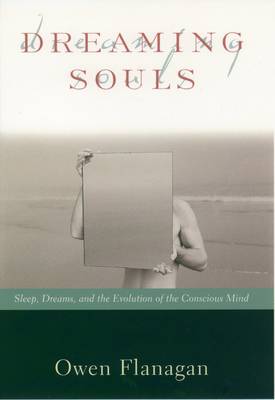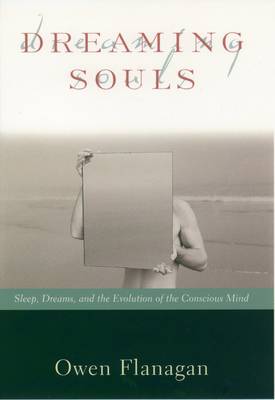
- Afhalen na 1 uur in een winkel met voorraad
- Gratis thuislevering in België vanaf € 30
- Ruim aanbod met 7 miljoen producten
- Afhalen na 1 uur in een winkel met voorraad
- Gratis thuislevering in België vanaf € 30
- Ruim aanbod met 7 miljoen producten
Zoeken
€ 83,45
+ 166 punten
Omschrijving
What, if anything, do dreams tell us about ourselves? What is the relationship between types of sleep and types of dreams? Does dreaming serve any purpose? Or are dreams simply meaningless mental noise--"unmusical fingers wandering over the piano keys"?
With expertise in philosophy, psychology, and neuroscience, Owen Flanagan is uniquely qualified to answer these questions. And in Dreaming Souls he provides both an accessible survey of the latest research on sleep and dreams and a compelling new theory about the nature and function of dreaming. Flanagan argues that while sleep has a clear biological function and adaptive value, dreams are merely side effects, "free riders," irrelevant from an evolutionary point of view. But dreams are hardly unimportant. Indeed, Flanagan argues that dreams are self-expressive, the result of our need to find or to create meaning, even when we're sleeping. Rejecting Freud's theory of manifest and latent content--of repressed wishes appearing in disguised form--Flanagan shows how brainstem activity during sleep generates a jumbled profusion of memories, images, thoughts, emotions, and desires, which the cerebral cortex then attempts to shape into a more or less coherent story. Such dream-narratives range from the relatively mundane worries of non REM sleep to the fantastic confabulations of deep REM that resemble psychotic episodes in their strangeness. But however bizarre these narratives may be, they can shed light on our mental life, our well being, and our sense of self.
Written with clarity, lively wit, and remarkable insight, Dreaming Souls offers a fascinating new way of apprehending one of the oldest mysteries of mental life.
With expertise in philosophy, psychology, and neuroscience, Owen Flanagan is uniquely qualified to answer these questions. And in Dreaming Souls he provides both an accessible survey of the latest research on sleep and dreams and a compelling new theory about the nature and function of dreaming. Flanagan argues that while sleep has a clear biological function and adaptive value, dreams are merely side effects, "free riders," irrelevant from an evolutionary point of view. But dreams are hardly unimportant. Indeed, Flanagan argues that dreams are self-expressive, the result of our need to find or to create meaning, even when we're sleeping. Rejecting Freud's theory of manifest and latent content--of repressed wishes appearing in disguised form--Flanagan shows how brainstem activity during sleep generates a jumbled profusion of memories, images, thoughts, emotions, and desires, which the cerebral cortex then attempts to shape into a more or less coherent story. Such dream-narratives range from the relatively mundane worries of non REM sleep to the fantastic confabulations of deep REM that resemble psychotic episodes in their strangeness. But however bizarre these narratives may be, they can shed light on our mental life, our well being, and our sense of self.
Written with clarity, lively wit, and remarkable insight, Dreaming Souls offers a fascinating new way of apprehending one of the oldest mysteries of mental life.
Specificaties
Betrokkenen
- Auteur(s):
- Uitgeverij:
Inhoud
- Aantal bladzijden:
- 224
- Taal:
- Engels
- Reeks:
Eigenschappen
- Productcode (EAN):
- 9780195142358
- Verschijningsdatum:
- 17/05/2001
- Uitvoering:
- Paperback
- Formaat:
- Trade paperback (VS)
- Afmetingen:
- 152 mm x 229 mm
- Gewicht:
- 340 g

Alleen bij Standaard Boekhandel
+ 166 punten op je klantenkaart van Standaard Boekhandel
Beoordelingen
We publiceren alleen reviews die voldoen aan de voorwaarden voor reviews. Bekijk onze voorwaarden voor reviews.











